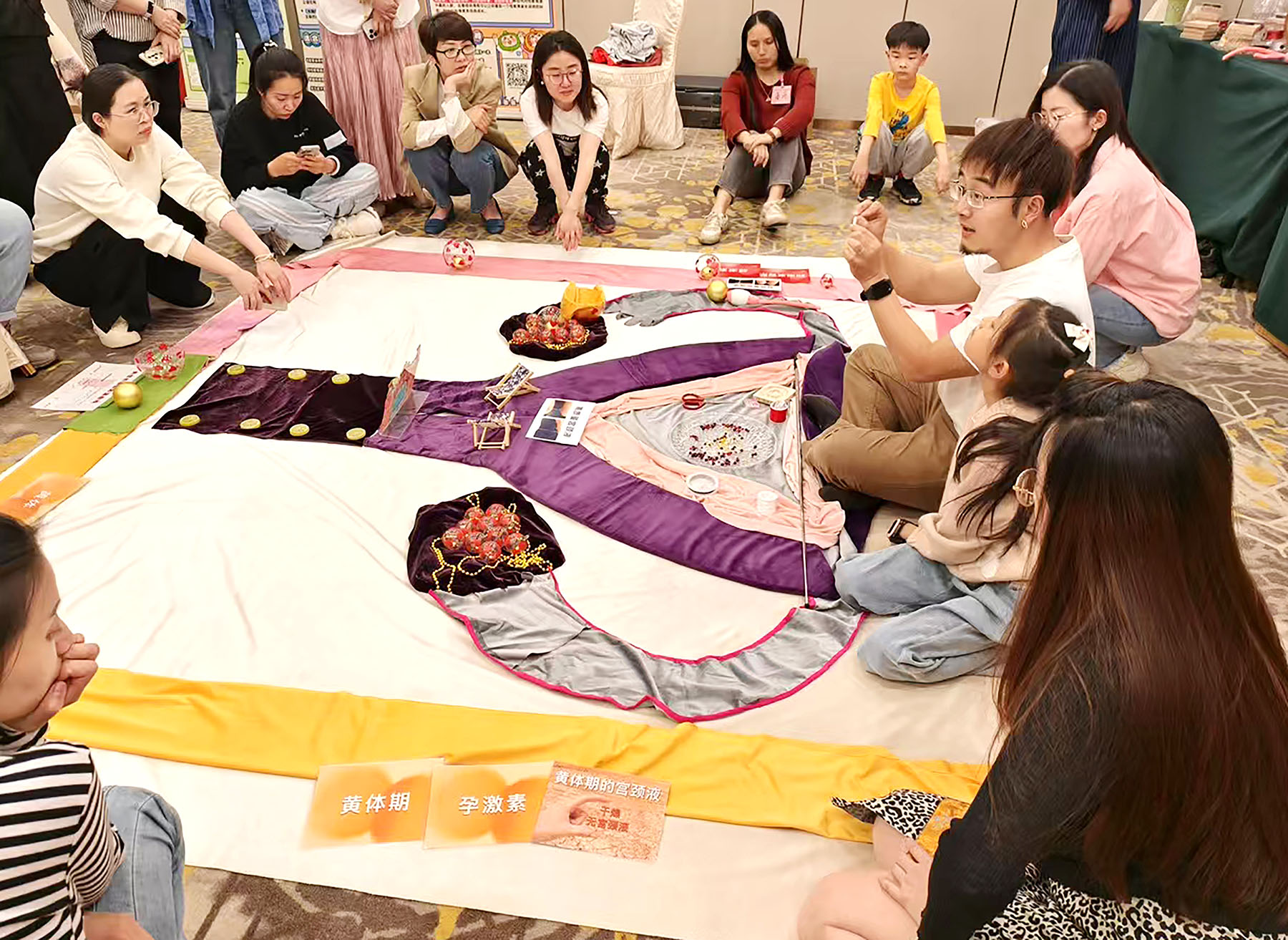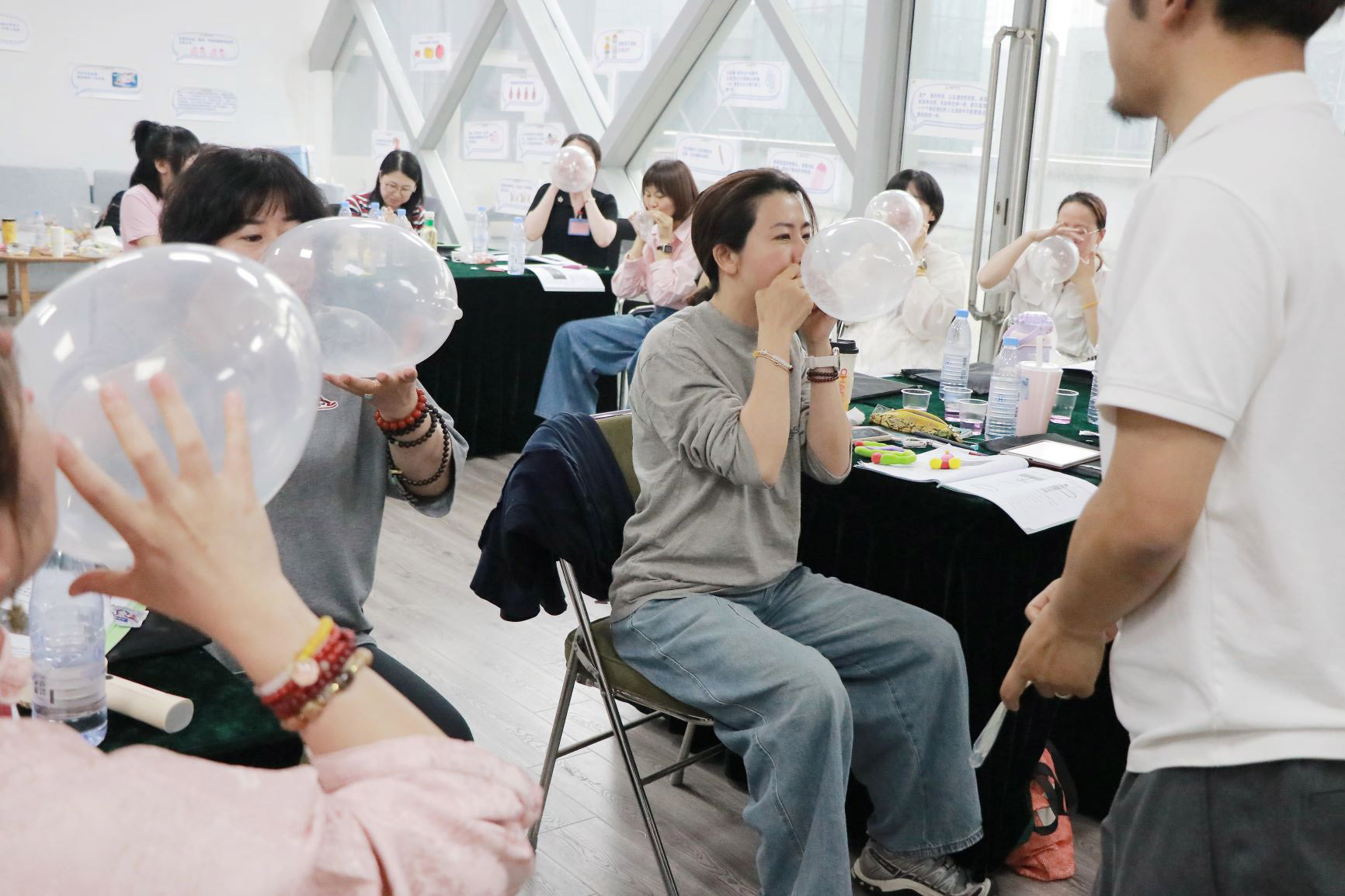By questioning stereotypes and teaching empathy, Male Virtue Academy encourages boys to grow beyond rigid definitions of masculinity and manhood.

Defining "masculinity" is not as simple as it may seem.
Is it a weakness for boys to cry? How should they respond if a female classmate becomes the target of sexual rumors? What is the right way for adolescent boys to shave? These may sound like small questions, but they have a profound impact on countless teenage boys.
To address these concerns, Baohu Doudou, a social enterprise dedicated to children's sexuality education, launched a video series called Male Virtue Academy at the end of 2024.
The series explores how boys develop gender awareness and how men can engage with gender issues.
Some episodes have garnered up to 1.5 million views on Douyin, the Chinese version of TikTok, making it a significant phenomenon in youth sexuality education.
READ MORE: Speak up, check up
When the team first proposed the name "Male Virtue Academy", they expected controversy, said Zhu Ge, the series' chief planner.
"Some people might interpret 'male virtue' as a phrase of gender confrontation, but we believe that a playful name would quickly attract attention," Zhu explained. "Once people tune in, we can use that platform to share the real message of gender equality."
The series avoids inciting conflict or using inflammatory language. Instead, it aims to "let both genders hear each other's voices in a gentle and calm manner", said Hu Jiawei, founder of Baohu Doudou.
The production team behind Male Virtue Academy consists of two women and four men — unusual in a field largely led by women. But the mix has its advantages. According to Hu, when male team members discuss topics like buying sanitary pads or supporting women who face sexual harassment, male viewers are more likely to relate and open up to the message.
The series is structured around four core themes that address the specific challenges boys face as they grow up. The first focuses on physiology and personal hygiene, providing guidance on genital care and underwear cleaning.
"This section is about teaching boys to understand and accept themselves," Hu said.
The second theme emphasizes interpersonal relationships, covering issues such as sexual harassment prevention and verbal abuse. The third centers on emotions and communication.
"We've found that many boys tend to suppress their emotions; they're used to burying stress and not letting others see it, which can easily lead to mental health problems over time," he noted.
The final subject is life skills, designed to encourage men to take a more active role in household responsibilities, whether it's cleaning or childcare. "The traditional notion that 'men as breadwinners, women as homemakers' needs to be re-evaluated," Hu said.

Beyond masculinity
For generations, a man's detachment from household chores was seen as a hallmark of masculinity. Zhu admitted that, growing up, he was taught a "real man" should never touch dishwater or a broom.
But after joining Baohu Doudou, his views have changed, and his mindset has broadened.
"I've come to realize that it's not inherent for women to be one way and men to be another. Everyone needs to understand and support each other," he said.
Now, Zhu embraces the role of a caring father. To him, soothing a baby to sleep or changing diapers doesn't diminish his masculinity.
When he brought his two-year-old daughter to a five-day company retreat and cared for her attentively throughout, he earned unanimous respect from his colleagues.
Hu also strongly opposes the "macho mentality" and so-called "tough guy education". He recalled being told as a boy that he must not cry — and if he did, his family would angrily order him to stop within three seconds.
The experience only added to his stress and left him struggling to show empathy in intimate relationships. When his partner cried, for example, instead of offering comfort, he felt confused and even irritated.
"Many men's ability to express emotions is cut off by traditional gender education, and their inability to release negative feelings ultimately harms both themselves and those around them," Hu said.
He now believes true education should encourage boys to accept themselves and respect others, helping them grow into emotionally complete and independent thinkers.
Boys in focus
According to Hu, Male Virtue Academy advocates for nurturing each boy's individuality — their personality, preferences, and self-identity — rather than forcing everyone into a narrow definition of "masculinity".
"We don't want to promote one fixed model of what a man should be. Otherwise, those who don't fit that mold risk being bullied or discriminated against," Hu said.
When it comes to sexuality education for children, there is a growing consensus that boys may need scientific gender education even more urgently than girls — though it is essential for adolescents of both genders.
"The social and cultural messages boys receive are often more aggressive," Hu explained. "Without proper guidance, statistics show that they are more likely to become perpetrators of sexual harassment or assault."
An even bigger challenge, he noted, comes from deeply ingrained family and social environments.
In one class, Hu asked a group of primary school boys, "What should you do if your dad cries?" One child immediately said, "Dads shouldn't cry. If they do, they're losers."
ALSO READ: 'How do we love?' Young Chinese explore answers in classrooms
"This clearly reflects what they've absorbed from older generations, showing how traditional gender roles are passed down," Hu said.
The absence of fathers from housework and childcare, the casual use of foul language, and crude jokes among peers — these everyday influences constantly reinforce distorted ideas of "what it means to be male", making gender equality education especially challenging, Hu added.
For many boys, knowledge about the opposite gender is often vague or even nonexistent. Zhu pointed out that in practice, few people ever teach boys how to properly care for women.
He gave the example of buying sanitary pads. While men do not menstruate, their mothers, partners, or daughters do. Learning how to buy sanitary pads and provide support during menstruation, Zhu argued, should be considered a "required course" for boys' education.
"The purpose of Male Virtue Academy is to fill this gap in boys' education," Zhu said. "As long as we persist in this effort, change will come — and tomorrow will be better than today."
Contact the writer at guiqian@i21st.cn


